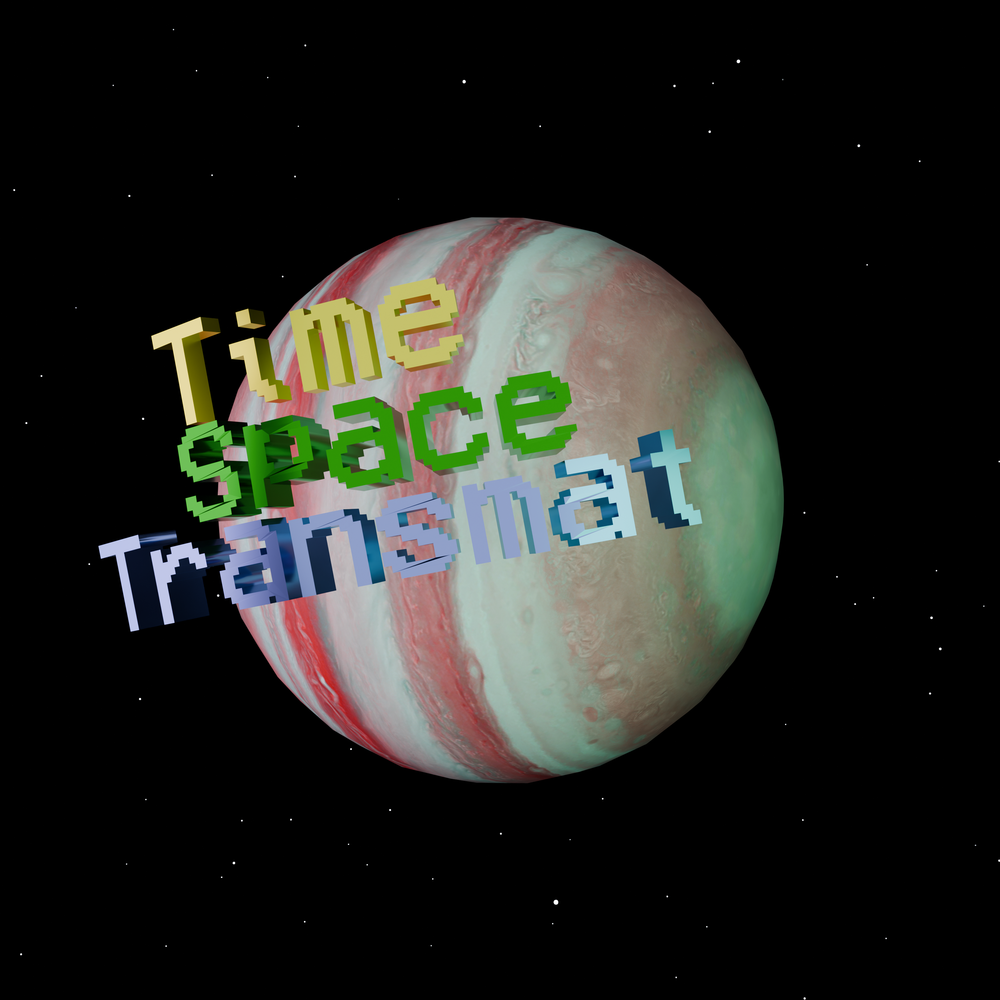
Time. Space. Transmat.
Signals slip, codes fracture, and meaning drifts across unstable networks. Time. Space. Transmat channels the glitch between translation, teleportation, and remote control, where AI mediates communication and transforms digital gestures into material echoes. The exhibition unfolds as a constellation of misalignments, transmissions, and re-materialisations—uncertain passages across time, space, and system.
Work by Joseph Farbrook, Yichu Li, Kimberly Lyle, David Lisser, Mark O'Knee, and Tom Milnes.
Embassy at Under.
Plymouth, England.
March 2026 (more info TBA)
Curated by Tom Milnes for Polygon Palm.
Time. Space. Transmat is an experimental online exhibition that explores the unstable territories of translation, transportation, and remote control in a networked age. The title is borrowed from Juan Atkins’ 1980s techno project Model 500, referencing teleportation and transmission through time and space.
Curated for the Wrong Biennale, the project speculates on the ways AI, digital systems, and machine mediation fracture and reshape communication. The participating artists – Yichu Li, Kimberly Lyle, David Lisser, Joseph Farbrook, Mark O'Knee, and Tom Milnes – respond to these themes through online works generated and assembled with artificial intelligence, each presented as a unique web environment within the Polygon Palm site.
The exhibition questions what it means to transmit ideas, objects, and selves across uncertain thresholds: from code to image, from screen to object, from immaterial networks to physical artefacts. Works emerge in states of mistranslation and remote manipulation, exploring the poetics of systems that are never fully under human control.
Time. Space. Transmat. examines contemporary concepts of movement and transformation—how we relocate ideas, identities, and matter across different realities and media. The artists exhibiting respond to the fluid boundaries between virtual and physical spaces, exploring how teleportation (instantaneous movement), transportation (physical and metaphorical journeys), and translation (interpreting and transposing meaning) are reshaped through technology and our understanding of presence and experience - particularly through computation and artificial intelligence systems. L.M. Harris, also known as Clare Winger Harris, was a pioneering science fiction author known for her early contributions to the genre, particularly in the 1920s and 30s. She is noted as the first to introduce the term 'transmat' in the Future Science Fiction publication, 1959 she wrote "One of these days.., they'll invent a Transmat that'll set you down anywhere." (Harris, 1959)
Time. Space. Transmat runs online from November 2025 – March 2026, hosted on the Wrong Biennale platform and through Polygon Palm. In March 2026, the project will take a further leap through transformation: the digital works will be materially re-imagined as physical objects via pen plotting and 3D printing for an exhibition at UNDER, KARST, Plymouth (UK).
As part of the Wrong Biennale’s distributed and decentralised ethos, Time. Space. Transmat inhabits a liminal zone between the digital and the physical, the controlled and the glitching, the transmitted and the mistranslated.